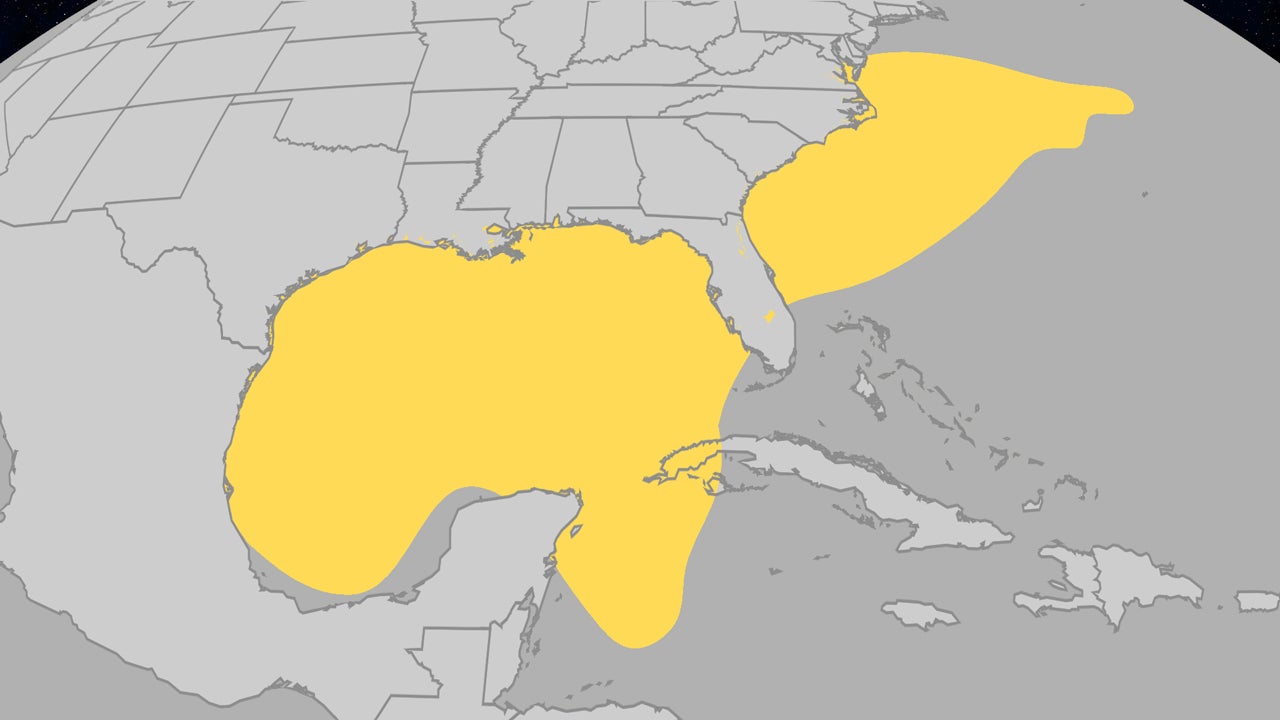Understanding June Hurricanes: Atlantic Storm Development And Recent Trends

Welcome to your ultimate source for breaking news, trending updates, and in-depth stories from around the world. Whether it's politics, technology, entertainment, sports, or lifestyle, we bring you real-time updates that keep you informed and ahead of the curve.
Our team works tirelessly to ensure you never miss a moment. From the latest developments in global events to the most talked-about topics on social media, our news platform is designed to deliver accurate and timely information, all in one place.
Stay in the know and join thousands of readers who trust us for reliable, up-to-date content. Explore our expertly curated articles and dive deeper into the stories that matter to you. Visit Best Website now and be part of the conversation. Don't miss out on the headlines that shape our world!
Table of Contents
Understanding June Hurricanes: Atlantic Storm Development and Recent Trends
June hurricanes are rare, but not unheard of. The image of hurricane season conjures up late summer and fall, but the reality is that hurricane formation in the Atlantic basin can begin as early as June. While less frequent than their late-season counterparts, these early-forming storms can still pack a powerful punch, highlighting the unpredictable nature of tropical weather and the importance of year-round hurricane preparedness. This article delves into the factors influencing June hurricane development and explores recent trends in Atlantic storm formation.
The Science Behind Early-Season Hurricanes
Several meteorological factors contribute to the formation of hurricanes, even in June. These include:
-
Sea Surface Temperatures (SSTs): Warm ocean water is the fuel for hurricanes. While SSTs generally reach their peak in late summer and fall, sufficiently warm waters can exist in the Atlantic during June, particularly in the Gulf of Mexico and Caribbean Sea. Water temperatures exceeding 80°F (27°C) are crucial for hurricane development.
-
Atmospheric Instability: A volatile atmosphere with high moisture content and unstable air masses is needed for thunderstorm development, which is the precursor to hurricane formation. While atmospheric conditions are generally less conducive in June, variations in wind shear and atmospheric pressure can create favorable environments for storm genesis.
-
Wind Shear: Low wind shear, meaning minimal change in wind speed and direction with altitude, is essential for hurricane formation. Strong wind shear can disrupt the organization of thunderstorms, preventing them from developing into a cohesive hurricane structure. Lower wind shear events can occur sporadically even in June.
-
African Easterly Waves: These westward-moving troughs of low pressure originating off the coast of Africa are a primary source of many Atlantic hurricanes. While the peak of their activity is later in the season, some waves can emerge early, potentially leading to June hurricane formation.
Recent Trends and Notable June Hurricanes
While June hurricanes remain infrequent, there's been a noticeable shift in recent years towards earlier storm development. Climate change is suspected to play a role, with rising ocean temperatures potentially extending the hurricane season.
-
Althea (1969): This hurricane, hitting Florida, serves as a stark reminder of the potential devastation of even early-season storms.
-
Agatha (2022): This was the first hurricane of the 2022 Atlantic hurricane season, emphasizing the need for continued vigilance regardless of the calendar month.
Analyzing long-term data on Atlantic hurricane activity is crucial for understanding these trends and improving predictive models. Scientists continue to research the impact of climate change on hurricane intensity and frequency, including the potential for more frequent June storms.
Preparing for the Unexpected: Year-Round Hurricane Preparedness
The occurrence of June hurricanes underscores the importance of year-round hurricane preparedness. Don't wait until the official start of hurricane season (June 1st) to prepare. Take proactive steps now:
- Develop a Hurricane Plan: Create a family emergency plan, including evacuation routes, communication strategies, and essential supplies.
- Build an Emergency Kit: Stock up on non-perishable food, water, medications, first-aid supplies, and other necessities.
- Strengthen Your Home: Take steps to protect your home from potential damage, such as securing loose objects and trimming trees.
- Stay Informed: Monitor weather forecasts regularly throughout the year and be prepared to act quickly if a storm threatens.
While June hurricanes are less common than those later in the season, their potential for significant damage necessitates continuous awareness and preparedness. By understanding the factors influencing their development and staying informed about the latest trends, we can better protect ourselves and our communities. Visit the National Hurricane Center ([link to National Hurricane Center website]) for the latest updates and advisories.

Thank you for visiting our website, your trusted source for the latest updates and in-depth coverage on Understanding June Hurricanes: Atlantic Storm Development And Recent Trends. We're committed to keeping you informed with timely and accurate information to meet your curiosity and needs.
If you have any questions, suggestions, or feedback, we'd love to hear from you. Your insights are valuable to us and help us improve to serve you better. Feel free to reach out through our contact page.
Don't forget to bookmark our website and check back regularly for the latest headlines and trending topics. See you next time, and thank you for being part of our growing community!
Featured Posts
-
 Newlyweds Travis Hunter And Leanna De La Fuente Celebrating Their Union
May 28, 2025
Newlyweds Travis Hunter And Leanna De La Fuente Celebrating Their Union
May 28, 2025 -
 From Dead Last To Champion Ross Chastains Epic Coca Cola 600 Win
May 28, 2025
From Dead Last To Champion Ross Chastains Epic Coca Cola 600 Win
May 28, 2025 -
 Ten Hag Al Leverkusen Un Analisi Delle Possibilita Di Successo
May 28, 2025
Ten Hag Al Leverkusen Un Analisi Delle Possibilita Di Successo
May 28, 2025 -
 Doubleheader Disaster Larsons Indy 500 Crash And Coca Cola 600 Prospects
May 28, 2025
Doubleheader Disaster Larsons Indy 500 Crash And Coca Cola 600 Prospects
May 28, 2025 -
 Pacers Lead Evaporates Knicks Game 3 Upset Over Pacers
May 28, 2025
Pacers Lead Evaporates Knicks Game 3 Upset Over Pacers
May 28, 2025
